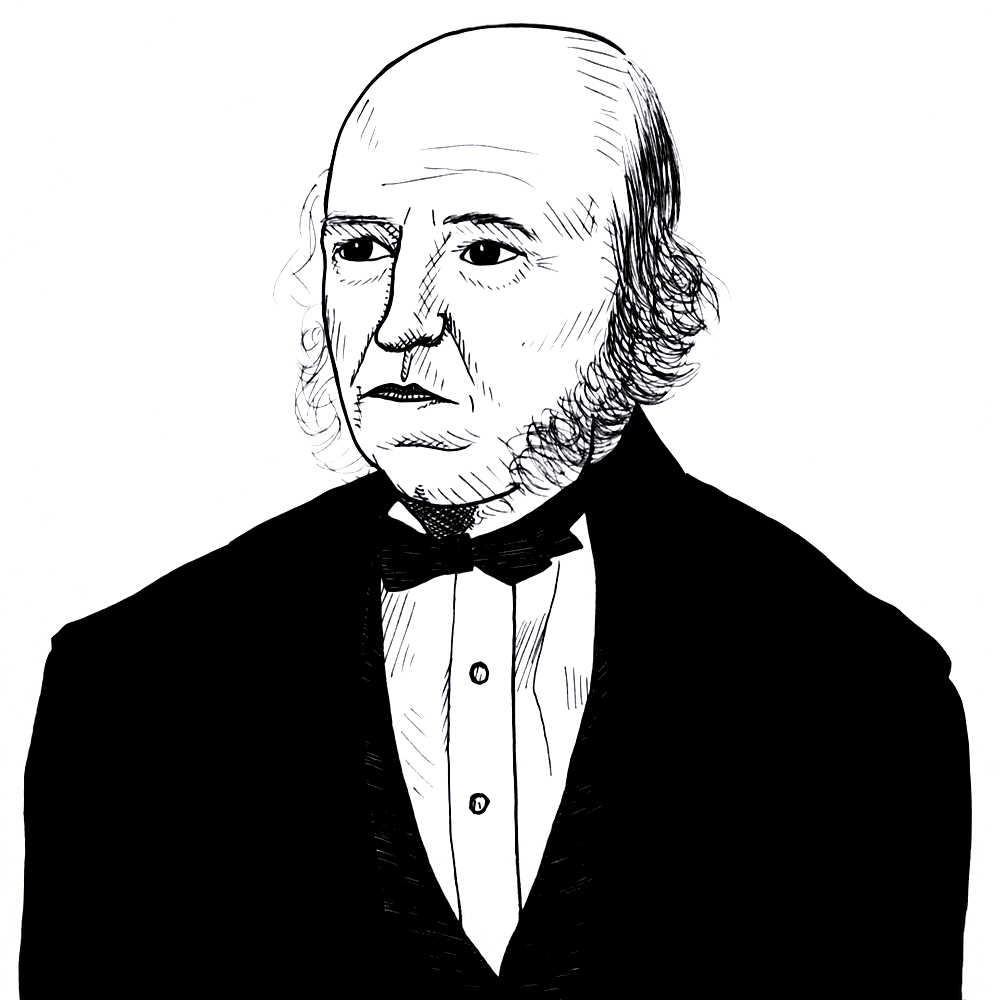
Spencer on spontaneous order produced by “the beneficent working of social forces” (1879)
Found in: The Principles of Ethics, vol. 2 (LF ed.)
The English radical individualist philosopher Herbert Spencer (1820-1903) believed that the legislator makes a serious mistake in thinking of society “as a manufacture” in spite of all the evidence to the contrary, that it is the result of “the spontaneous cooperations of men pursuing their private ends” in spite of much “governmental obstruction”:
Economics
Which is the more misleading, belief without evidence, or refusal to believe in presence of overwhelming evidence? If there is an irrational faith which persists without any facts to support it, there is an irrational lack of faith which persists spite of the accumulation of facts which should produce it; and we may doubt whether the last does not lead to worse results than the first.
The average legislator, equally with the average citizen, has no faith whatever in the beneficent working of social forces, notwithstanding the almost infinite illustrations of this beneficent working. He persists in thinking of a society as a manufacture and not as a growth: blind to the fact that the vast and complex organization by which its life is carried on, has resulted from the spontaneous cooperations of men pursuing their private ends.